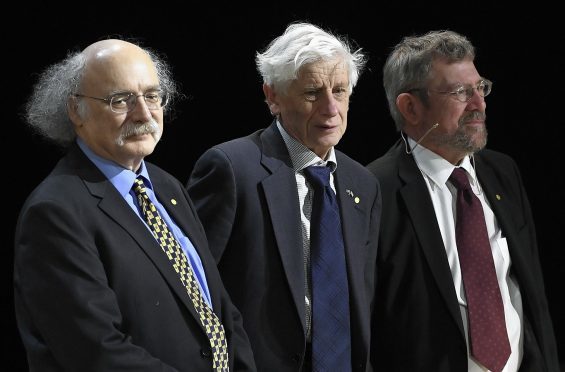An Aberdeen-born scientist has been awarded a Nobel Prize in physics for his pioneering work which revealed the secrets of “exotic matter”.
Discoveries made by Professor Michael Kosterlitz, a former Robert Gordon’s College pupil, could have applications in electronics, magnetic devices and quantum computing.
The prize was shared by Glasgow-born David Thouless, who is a professor emeritus at the University of Washington, and London-born Duncan Haldane, 65, who is a physics professor at Princeton University in New Jersey.
Prof Kosterlitz, 73, was born in Aberdeen in 1943, and attended Robert Gordon’s College between 1948 and 1959.
He later studied at Cambridge and Oxford Universities, before embarking on his work with Thouless in Birmingham.
He has been a physics professor at Brown University in Providence, Rhode Island, since 1982.
He is the son of award-winning Aberdeen University medical researcher, Hans Kosterlitz, best known for his discovery of natural painkillers made by the brain.
The German-born scientist fled Nazi German in 1934 and moved to Aberdeen, where he remained until his death in 1996 aged 93.
Aberdeen University’s Kosterlitz Centre for Therapeutics, at Foresterhill – which aims to translate lab discoveries into new drugs to treat conditions such as pain, neurodegenerative diseases, cancer, heart disease, infection and obesity – is named after him.
Professor Kosterlitz received his award at a ceremony in Stockholm at the weekend – on the anniversary of prize founder Alfred Nobel’s death in 1896.
The prize money of £730,000 will be shared between the three, with half going to Thouless and the other half split between Haldane and Kosterlitz.
The Royal Swedish Academy of Science said the trio had “opened the door to a mysterious world in which matter can assume unusual states unknown in nature”.
They used advanced mathematical modelling to study strange ‘phases’ of matter such as superconductors, superfluids and thin magnetic films.
Professor Kosterlitz was in an underground car park in Helsinki, Finland when he heard news of the prize.
He said he was a “bit dazzled” but “elated” to have received the award.
